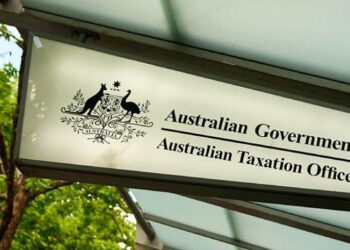In its submission to Treasury on the draft legislation for Delivering Better Financial Outcomes Tranche 2, Part A, the Financial Advice Association of Australia also recommended transition to retirement and retirement advice be explicitly excluded from any definition of simple advice.
“Retirement advice is complex and critically important. It should not be provided by people who do not have adequate qualifications and experience and in an environment where there are significant limitations, including with respect to the product options that are available,” the submission stated.
“Although this point is not specifically addressed in this draft legislation, it is important that retirement advice cannot be provided by the New Class of Provider.”
The FAAA noted that the ALRC highlighted the importance of ensuring the regulatory framework advances competition in the financial services sector but said enabling personal retirement planning advice to be provided on an intra-fund or collective charging basis runs counter to this recommendation in two ways.
“Firstly, the proposal provides a legislated cost advantage to super funds by allowing such entities to provide this advice at no additional direct cost. In contrast, professional financial advisers must meet all the personal advice regulatory requirements and charge each client directly to cover the true costs of providing such advice,” it stated.
“Secondly, the fund will only recommend its own products to its members via collectively charged advice – effectively removing their retirement income products from any competition, irrespective of whether their products are actually well-priced or providing a good level of service.”
It continued that collective charging of retirement advice should not be permitted, because it gives a substantial anti-competitive price advantage to super funds compared with other providers of financial advice, and because super funds’ retirement products would be substantially insulated from competition.
“The cost of providing retirement planning advice will significantly increase the cost of running an intra-fund advice business, with flow on consequences for all members of the fund,” the submission stated.
“This will result in significant cross subsidisation within the fund with younger members paying for the personal retirement planning advice of older members. Collective charging for retirement advice should not be permitted, because it will require many members to pay for a service which they have no potential to benefit from for many years.”
Furthermore, it noted that members who have already paid for their own professional financial advice should not be expected to pay for the provision of retirement planning advice to others.
Additionally, the FAAA submission stated that consumer protection must be at the forefront of the provision of financial advice and the law must be competitively neutral across all the different types of providers of personal financial advice.
“Consumer protection measures must be appropriately strengthened for personal financial advice provided by a New Class of Provider employed within a product provider (such as a superannuation fund), due to the inherent conflicts of interest within this model,” it continued.
“The provision of personal financial advice on a collectively charged basis should be limited to simple advice only and should not include transition to retirement or retirement advice, as these forms of advice are not simple.”
It stated that it recognises that presently there is only a small proportion of the Australian population who have access to and can afford quality financial advice and supported initiatives to address this.
“The broader DBFO reforms are pursuing an expansion of advice that can be provided, including by increasing the range of providers of advice through a separate initiative that is described as a ‘New Class of Adviser’,” it added.
“The name that will apply to this new class has been contentious from the outset, and it is our position that it should not include the term ‘adviser’ or ‘planner’, as these are controlled terms that can only be used by fully qualified and licensed professionals.”
It added that while it is aware that this release represents only part of DBFO Tranche 2, the remaining part is critically important to achieving the overall objectives of the reforms.
“In many cases, there is a close interdependency between what has been released and what is yet to be released as part of Tranche 2. For example, the rationalisation of the Best Interests Duty and the repeal of the safe harbour steps are closely linked to the rationalisation of advice documents,” it stated.
“Furthermore, clarifying what is and is not ‘simple advice’ and the role of the New Class of Provider category will impact on the released measures. Without full visibility of all remaining elements of the DBFO reforms, it is difficult to provide complete feedback on the effectiveness of these measures.”


